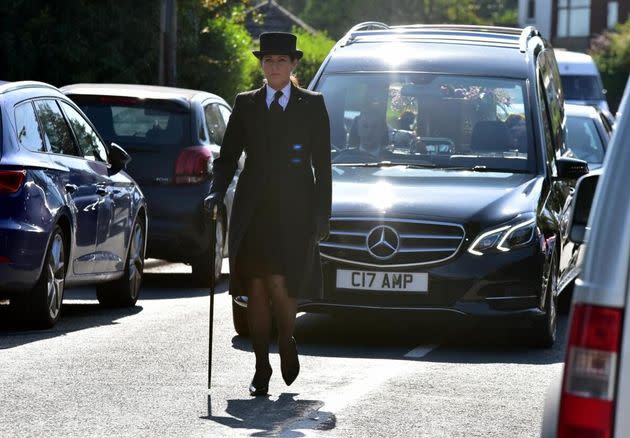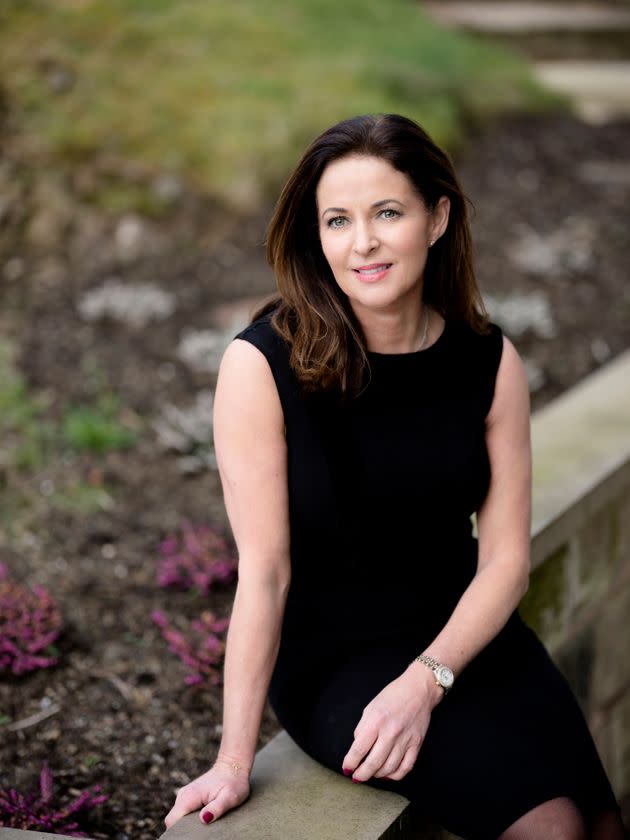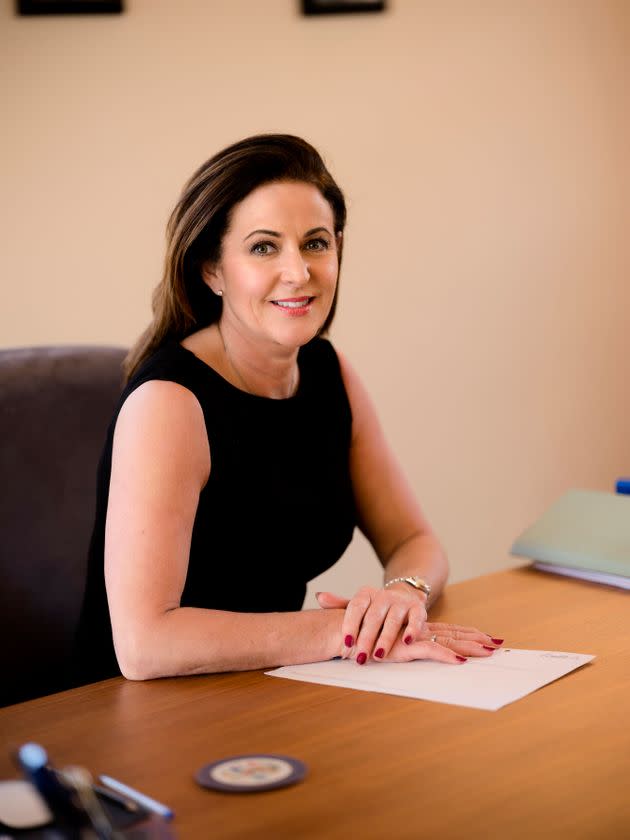At 18 I Became The UK's Youngest Funeral Director – Here's What I Wish You Knew About Death

I didn’t pick the profession, it picked me. From the age of 9, I just knew that I wanted to be an undertaker.
I don’t know why, I just know that from being a youngster, I used to feel other people’s sadness. At 15, my school careers advisor told me that I may as well want to be an astronaut as I would have no chance of becoming either - funerals and the moon were for men.
However, I was unshakeable and never faltered. I battled and became the first and youngest qualified female funeral director in the country. I remember I was like a sponge during my training years and asked so many questions.
I once asked one of the elderly drivers why there weren’t any other female undertakers. He replied, “Because there is a lot of silence involved in this job.”
That didn’t stop me asking my endless questions in my quest to know as much as I could about all things funerals.
Now in 2023, my true passion is grief and helping people regain their life following significant loss.
After years of being in front of thousands of grievers, here’s what I wish you knew about death.
The importance of having THE conversation
Talking about the weather doesn’t make it rain and talking about death and funerals doesn’t kill us. What it does is give us the opportunity to learn what will be important to us at the end of our life and to make good decisions for ourselves and our families. I always find it hard to watch people struggle with making decisions when they are grieving and torn, not knowing what their loved one wanted and praying that they have made the right choices.
Advance planning not only puts these things in place, it can also make us emotionally stronger and definitely kinder because we are realising that the people in our lives today, may not necessarily be here tomorrow.

We should let people cry
It is our natural instinct to stop people from crying, either with words or by touch. It feels like it’s the right thing to do but actually it isn’t.
Touch breaks the emotion and brings the person back into the present moment and drives the sadness back down inside. This subconsciously teaches the griever that they shouldn’t cry, even though it’s the most natural thing to do.
Crying is an essential and healing bodily chemical reaction. When we cry we feel wretched and afterwards, relief. Tears of sadness, fear and despair release an endorphin that reduces pain and stress immediately. They also contain stress hormones which is why it’s important for the body to get rid of them.
Being present with someone and just allowing their tears to flow is one of the best things you can do.
Don’t ignore someone who is grieving just because you don’t know what to say
They need to know that they don’t stand alone. Grief is terrifying and creates all sorts of emotional chaos. Just let them know that whatever they are feeling or whatever they say to you is ok and you will just be there.
Also don’t be afraid to share your favourite memory of the person who has died or mention their name for fear of causing upset - you won’t. They will be preoccupied with their loss and hearing their name spoken out loud helps.
Though there may be tears, that’s ok. Mentioning their name triggers memories and when we lose ourselves in memory we often find laughter. Sharing memories is where healing begins.
It also shows you care and shows how important that person was and still is.
Don’t try and ‘fix’ them when they have a wobble. It’s natural. Don’t say “I know how you feel”. You don’t.
Also, never start a sentence with, “At least ….”. Just be there in body, mind and spirit and listen with open ears. If you find your mind wandering, just follow their words in your head. When grievers are sharing their feelings, they are not having a conversation, they are making a statement. Feedback words to show you have heard them and thank them for sharing.

A fear of death isn’t usually about death
Is it the thought of dying or is it more about what is being left behind? If you were given a date for your death, there are things you know you need to do before that day arrived.
It could be worrying about how your family will cope. If so, prepare them. Teach them practical skills. Teach them how to share their feelings with each other. Teach them the value of life. Teach them that it isn’t how long we live that’s important but what we do with the time we have.
If you have committed a wrongdoing and still carry some residue, find a way to your peace with it.
Ask yourself what it is that you are afraid of? This is big. Have a pen and paper and be really honest. It may be that your fear of death is really a fear of something that needs attending to in your life. Peace comes at the end when we have removed all those thorns that prick from the things we know we should have or not have done or said.
When we lie to others, we lie to ourselves. Find your honesty branch and sit on it.
Grief is a period of temporary insanity
When I lost my mum in 2011, I knew that it would be horrific. It was the loneliest and scariest time of my life. No-one knew the right things to say to me and friends were terrified of saying the wrong thing, so they stayed away.
I had nowhere to turn except inwards. I had to try to find what was happening to me on my own. Knowing it would be horrific when it happened enabled me to just let myself fall into it and embrace whatever feelings came up, no matter how bad.
It was, for me, a period of temporary insanity but instinctively I knew it would be, so being aware of that allowed me cope. I didn’t put myself under any expectation and somehow that made my grief wholesome and purposeful and in time, sent me on my quest to learn as much as I could about grief in its absolute widest and deepest aspects.
Trust your instincts when you grieve - your body will lead you to grieve instinctively, authentically and naturally. And yes, it hurts and there is always a phoenix that rises out of the ashes (pardon the pun).
You can get involved in the funeral as much or as little as you like - not all funeral homes are equal
Very often, it’s only when we are affected by the loss of someone significant in our lives that we realise how little we know about funerals and grief.
Everyone is unique, every relationship we have is just like our own fingerprint.
Why would you want a funeral package? You need to know to whom you are entrusting your loved one and your emotional recovery. A funeral is not just a financial transaction. It is about so much more than just the cheapest quote.
All professional funeral homes provide a basic option for those who find themselves in a restricted financial situation, but proper care and support are still your right.
Funerals are not just about the disposal of a dead body. They are emotionally significant and ritualistic experiences – do not be afraid to ask questions.
View premises and compare facilities, staff experience, training and knowledge. Above all, choose a funeral home where there is a sense of deep and genuine compassion.
Lianna Champ has over 40 years’ experience as a grief and funeral care specialist and is author of the practical guide, How to Grieve Like A Champ.

 Yahoo Movies
Yahoo Movies 